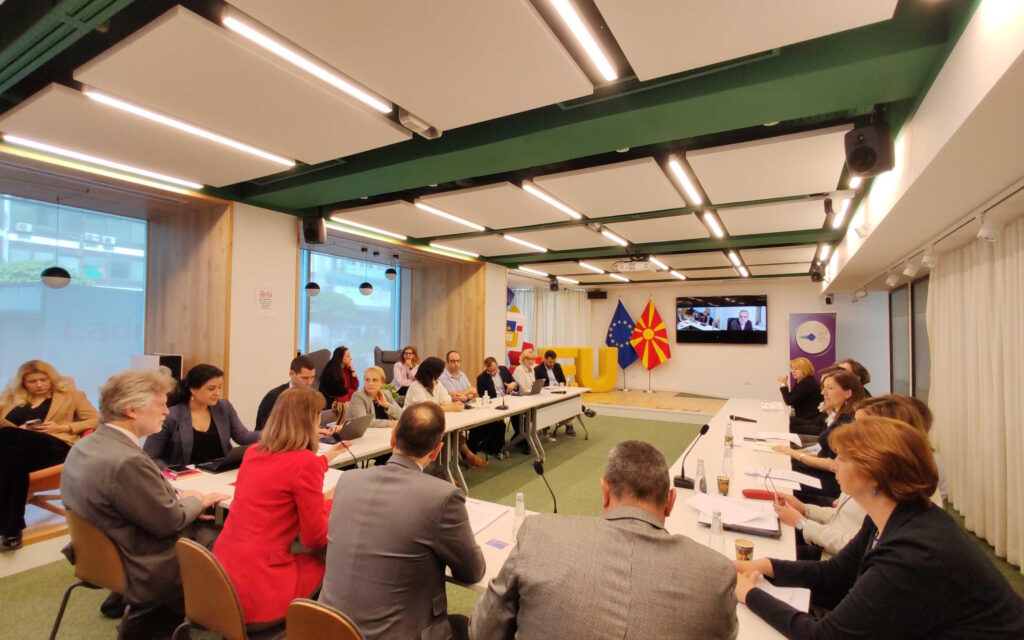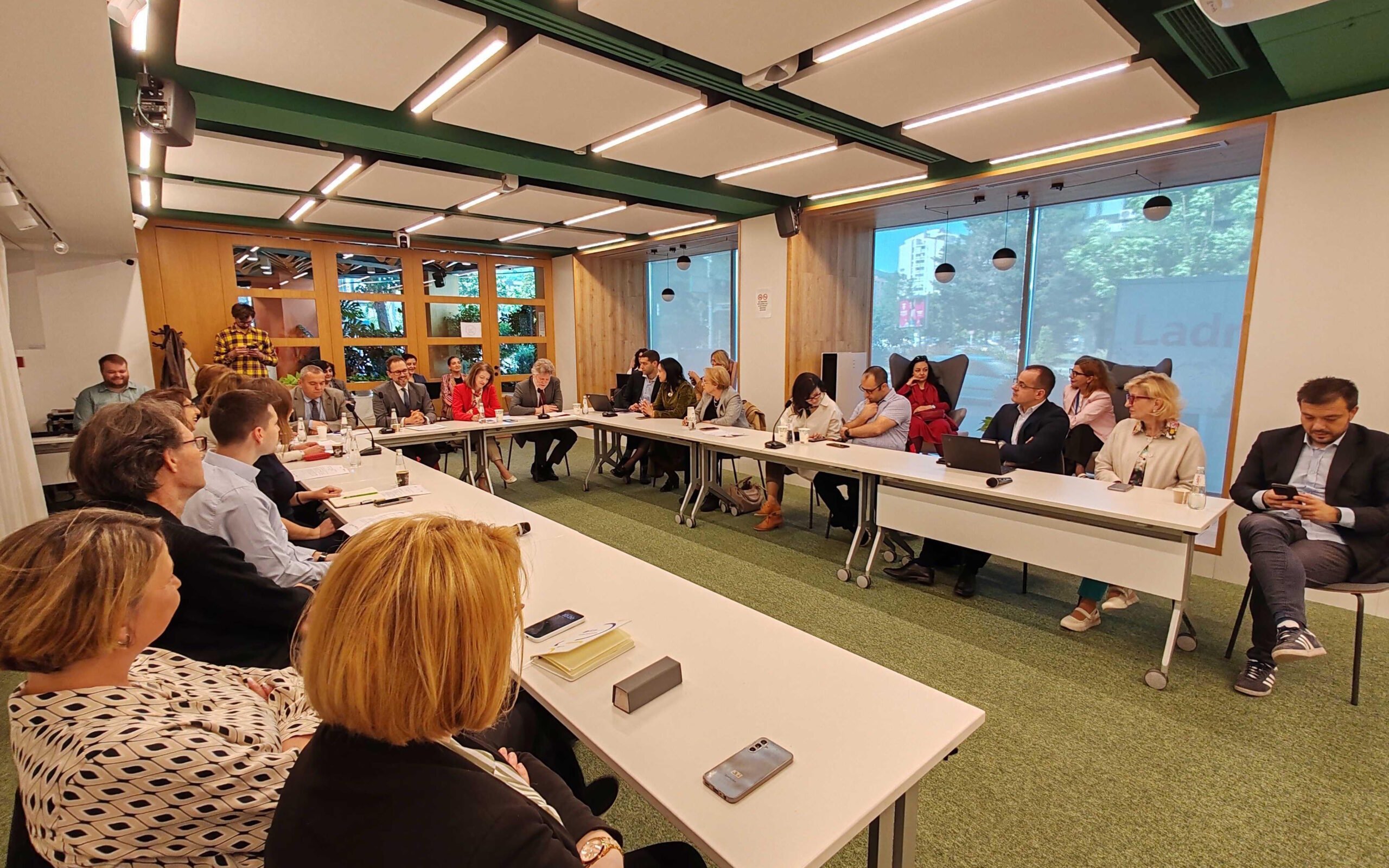Policy-makers, diplomats, civil society, and economic stakeholders gathered today in Skopje to discuss progress on regional integration and the implementation of CEFTA decisions and CRM mobility agreements, in an event co-organised by the European Policy Institute (EPI) and the Cooperation and Development Institute (CDI) from Albania.
The event is part of a regional series taking place from 22 to 29 May 2025 in the SEE6 capitals, designed to evaluate the impact of CEFTA decisions adopted in October 2024 and to contribute to the EU’s broader agenda for integrating the Western Balkans into the Single Market.
The event was opened by Simonida Kacarska, Director of EPI, and Ardian Hackaj, Research Director and Coordinator of the Tirana Connectivity Forum at CDI. Both emphasised the importance of civil society involvement and institutional dialogue in the Berlin Process, highlighting the transition from agreement-signing to practical implementation.
The discussion was moderated by Ana Krstinovska, President of Estima, who stressed the importance of transparent and inclusive debate on the implementation of CEFTA and the Common Regional Market.

The first session featured institutional perspectives, including Jan-Axel Voss Chargé d’Affaires a.i. at the German Embassy in North Macedonia, Daniel Fieller, Chargé d’Affaires at the British Embassy, and Olivera Ceni-Bardiqi, Trade Facilitation Expert at CEFTA. One of the takeaways from the session is that while CEFTA lacks enforcement powers, it remains a “training ground” for EU integration and must be backed by political will and implementation. It was also emphasised that trade and politics must go hand in hand to build a functional common regional market. It was noted that 18 of 42 CEFTA measures under the CRM Action Plan had been fully implemented.
The second session turned to the national level with Krum Efremov, Director and Biljana Dodevska, Special Counsellor at the Directorate for Economic and Public Diplomacy at the Ministry of Foreign Affairs and Foreign Trade, Stefan Ristovski from EPI and Professor Silvana Mojsovska from the Institute of Economics in Skopje. At the session, the panellists spoke about CEFTA’s role in aligning regional markets with EU standards and highlighted North Macedonia’s leadership in trade facilitation and non-tariff measures. It was also mentioned that there are disparities in standardization and certification across CEFTA parties, and there were insights shared on regional mobility agreements, pointing to fragmentation in implementation and a lack of clear communication and accountability, calling for better transparency, data availability, and inclusion of civil society from the earliest phases of decision-making.
This event is part of the lead-up to the 11th Tirana Connectivity Forum (16–17 September) and the Berlin Process Summit in the UK in October 2025, setting the tone for further coordination on regional mobility, economic integration, and EU alignment in the Western Balkans.






